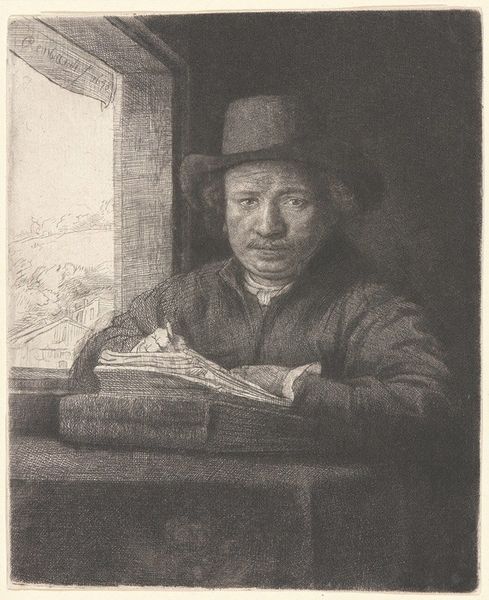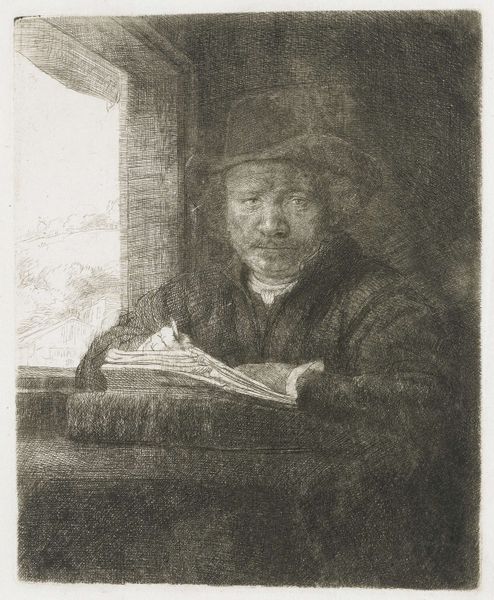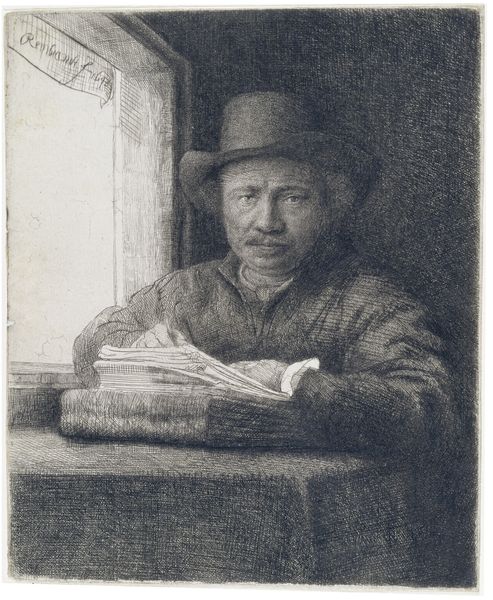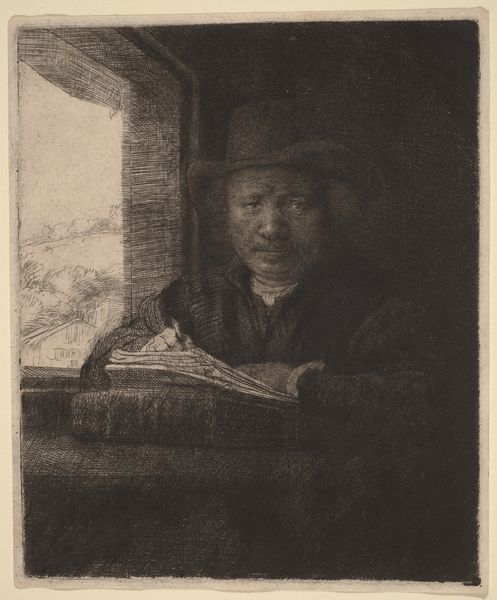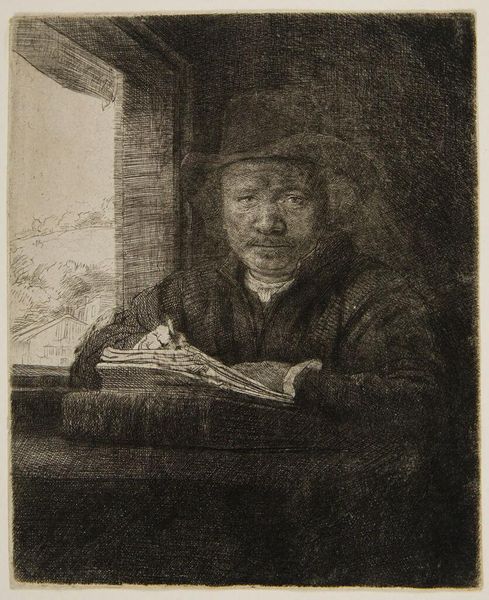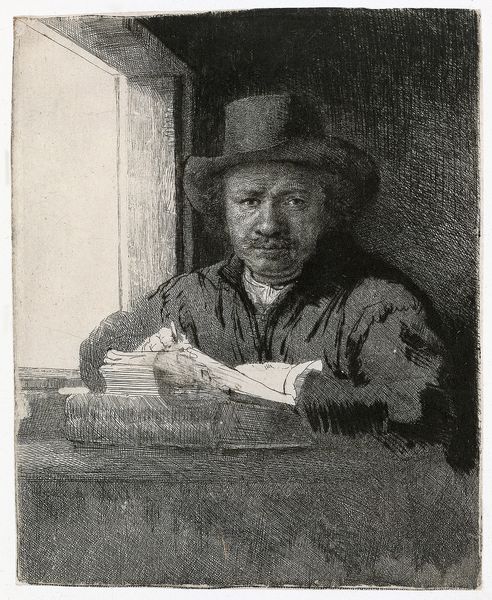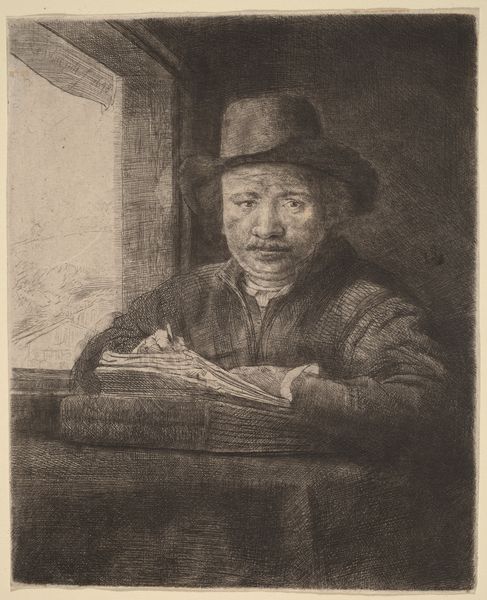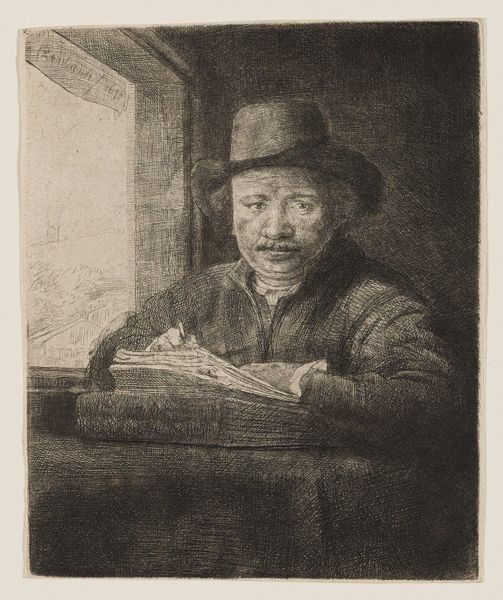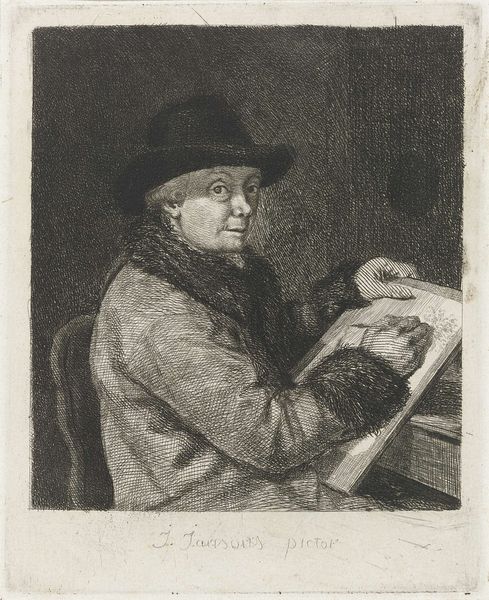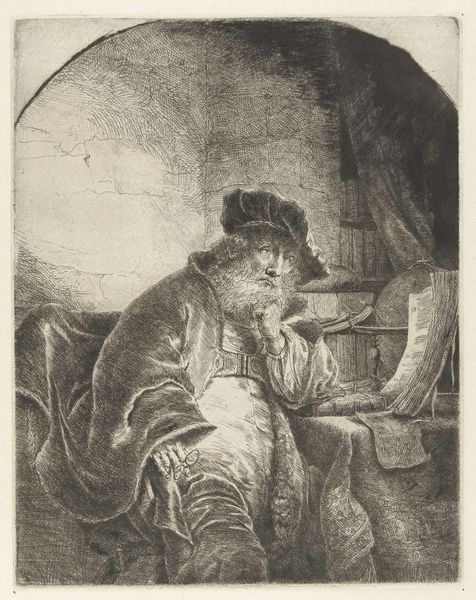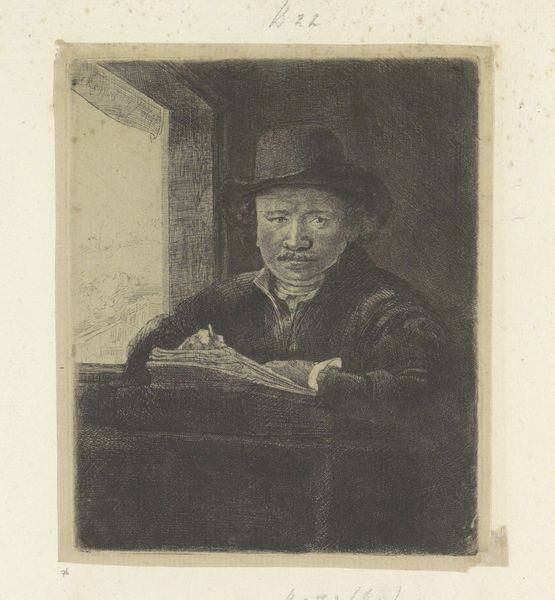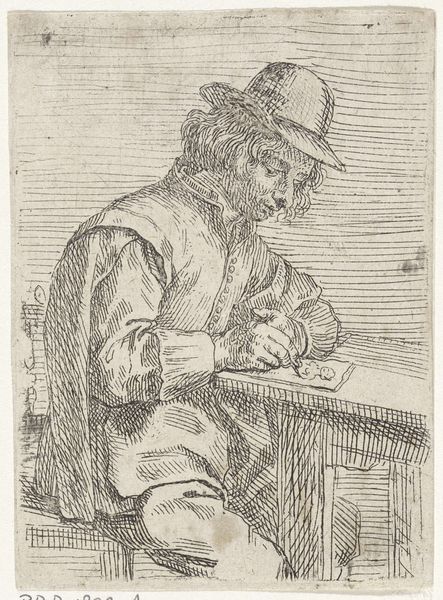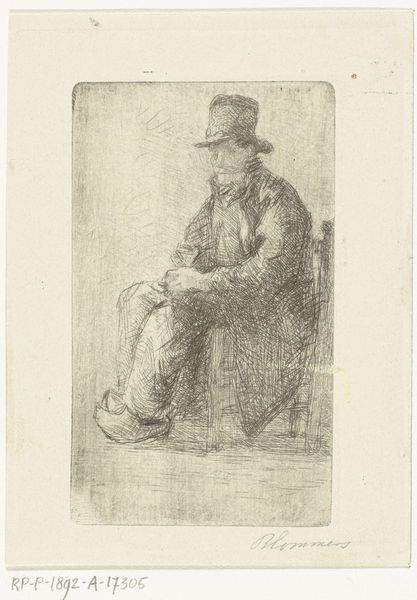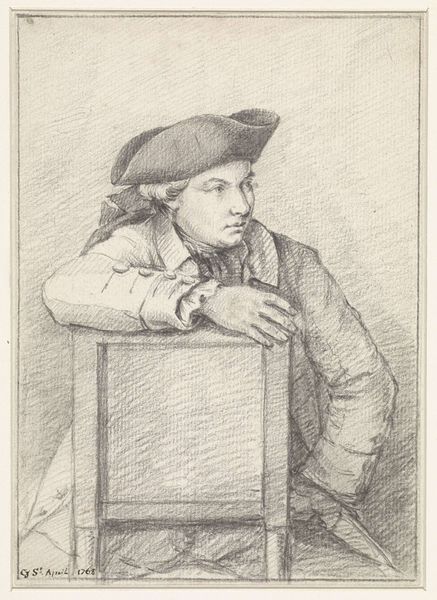
drawing, etching, paper, ink, charcoal
#
portrait
#
drawing
#
self-portrait
#
baroque
#
dutch-golden-age
#
etching
#
charcoal drawing
#
paper
#
ink
#
pencil drawing
#
portrait drawing
#
charcoal
Copyright: Public domain
Rembrandt van Rijn made this self-portrait in etching sometime around 1648, during the Dutch Golden Age. The image presents the artist in a domestic setting, leaning on a windowsill with drawing implements at hand. Sunlight streams in, illuminating his face and working materials, while the rest of the scene remains in shadow. This dramatic lighting is characteristic of Rembrandt, but here it also speaks to the social position of the artist. In 17th-century Holland, artists were becoming increasingly independent of aristocratic or ecclesiastical patronage, relying instead on the open market. Here, Rembrandt seems to be presenting himself as a craftsman, making his living by the light of his own labor. To understand this work more fully, we can consult archival records of the art market in Amsterdam, as well as the inventories of artists' studios. By examining the institutions and economic conditions that shaped Rembrandt's career, we gain a deeper appreciation of the social meaning of his art.
Comments
No comments
Be the first to comment and join the conversation on the ultimate creative platform.
